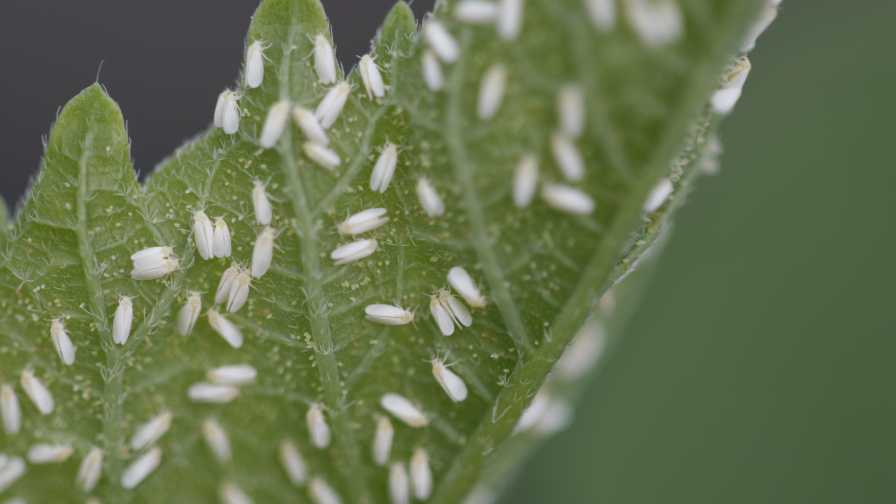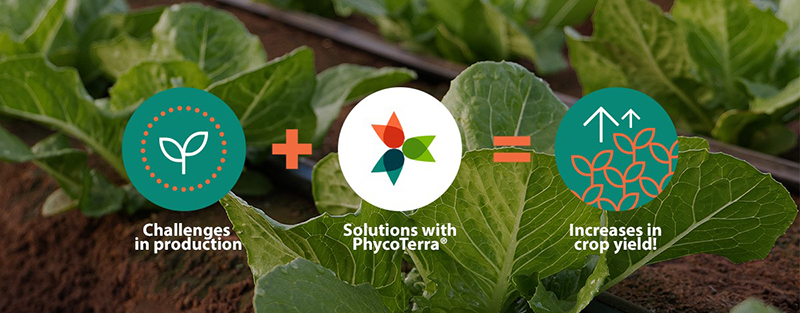Whitefly Threat Has Florida Growers On High Alert

Photo courtesy of UF/IFAS
According to UF/IFAS researchers, the notorious Q-biotype whitefly (aka, Mediterranean whitefly, Bemisia tabaci) is on the loose in the Sunshine State. The discovery marks the first time this particular species of whitefly has been found outside a greenhouse or nursery in the U.S. since it was identified on an ornamental plant in a greenhouse more than a decade ago.
Currently, the whitefly infestation is only in Palm Beach County –- for now.
UF/IFAS scientists are working with USDA-ARS and the Florida Department of Agriculture and Consumer Services to manage the light-colored, flying insect slightly less than 1 millimeter in length.
“Unfortunately, we have a developing whitefly issue in Florida,” said Lance Osborne, a faculty member at the UF/IFAS Mid-Florida Research and Education Center in Apopka. “The situation may be improved with diligent attention to identifying and reporting any outbreaks.”
The Q-biotype whitefly is a threat to numerous Florida crops such as tomatoes, squash, beans, watermelons, and many other vegetables and ornamentals.
The following measures are recommended by UF/IFAS to control the spread of Q-biotype whitefly:
- For identification purposes, infested leaves and dead insect specimens should be brought to local Extension offices. Wrap in a dry paper towel and place in a seal-able plastic bag and then in an envelope. Freezing the specimen overnight before transport is highly recommended. Live insects should not be transported.
- The collection information should be included with the sample. Date, location, what type of vegetation is affected, number of suspected whiteflies, and any information about whether a pesticide has been used on the plant, is helpful information to managing the pest.
- Because new populations have built up resistance to chemicals, it is recommended that suspected whitefly infestations be confirmed before chemically treating the insects, as it may be needless to spray pesticides.
- Nurseries that suspect whitefly infestations should contact the FDACS Division of Plant Industry at 1-888-397-1517.
- Landscapers and pest control operators should inspect for signs of whitefly pests, communicate with neighboring properties and homeowners associations, employ good management and growing practices, and implement whitefly management guidelines.
- Homeowners who suspect they have a whitefly infestation should contact their UF/IFAS Extension county office.









